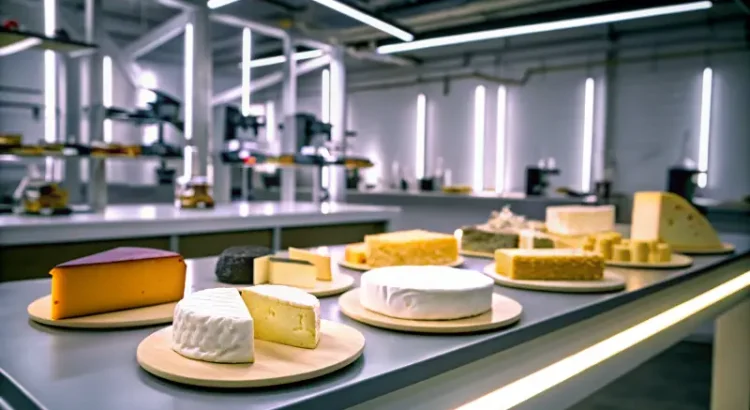The world of food is constantly evolving, and one of the most exciting recent innovations is lab-grown cheese. Created through a process called precision fermentation, this cheese offers a tantalizing prospect: dairy products made without the need for animals, addressing ethical and environmental concerns. But for millions living with food allergies, especially to dairy, this innovation comes with a crucial caveat.
The Protein Puzzle: Identical Means Allergenic
At the heart of lab-grown cheese is the goal to replicate the exact proteins found in traditional cow’s milk, primarily casein and whey. These are the very proteins that give cheese its familiar taste, texture, and melt. The challenge for allergy sufferers is that this replication is incredibly precise: the lab-grown proteins are molecularly identical to their animal-derived counterparts.
What does this mean for someone with a cow’s milk protein allergy? Simply put, if you’re allergic to the proteins in traditional dairy, you will likely be allergic to lab-grown cheese too. Companies developing these products, like Perfect Day, explicitly state that individuals with milk allergies should avoid their “animal-free” whey protein just as they would cow’s milk. This is a critical distinction: “animal-free” does not automatically mean “allergen-free”.
Good News for Lactose Intolerance, But Not Allergies
While milk protein allergy remains a concern, there’s good news for those who are lactose intolerant. Lab-grown dairy products are typically lactose-free. Lactose is a sugar, and the precision fermentation process focuses on producing the proteins without the milk sugar, making these products a safe option for individuals who struggle to digest lactose. However, it’s vital to remember that lactose intolerance is a digestive issue, distinct from a milk protein allergy, which is an immune system response.
The Looming “Vegan” Dilemma
For years, “vegan” cheese has been a lifeline for dairy allergy sufferers, as these plant-based alternatives are inherently free of animal proteins. They are made from ingredients like nuts, soy, oats, or pulses. The concern now is that if lab-grown cheese, with its “animal-free” appeal, becomes widely adopted and replaces these truly plant-based “vegan” options, it could inadvertently reduce safe choices for the allergy community. Consumers, accustomed to “vegan” meaning “dairy-free,” might mistakenly assume lab-grown cheese is safe, leading to accidental exposures and potentially severe allergic reactions. This shift could create a significant public health challenge if not managed with clear communication and labeling.
What This Means Going Forward
The future of food is exciting, but it also demands vigilance. While research is underway to engineer hypoallergenic versions of dairy proteins , these solutions are still years away from widespread commercial availability.
For now, the most important takeaway for anyone with a dairy allergy is to read labels meticulously. Understand that “animal-free” refers to the production method, not necessarily the protein content. Always look for explicit allergen declarations, and if in doubt, err on the side of caution. The goal is to ensure that as our food system innovates, it remains safe and inclusive for everyone.
